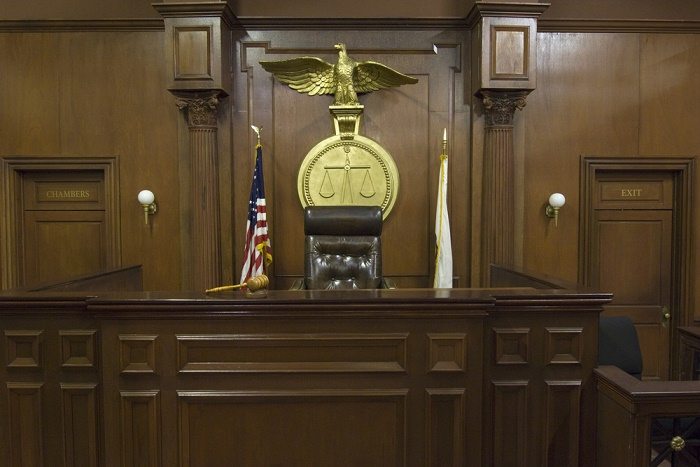Texas’ Omnibus Anti-Abortion Law Heads to Fifth Circuit Court
Texas' omnibus anti-abortion access law, which in part requires abortion providers to operate as mini-hospitals, will return to the Fifth Circuit Court of Appeals this week.

Texas’ omnibus anti-abortion access law, which in part requires abortion providers to operate as mini-hospitals, will return to the Fifth Circuit Court of Appeals this week. The Center for Reproductive Rights (CRR), which is representing a group of independent Texas abortion providers, and the Texas attorney general’s office, are set to make oral arguments before a three-judge panel on Wednesday morning.
This is the second time a federal court challenge to the multi-part HB 2 has made it to the notoriously conservative Fifth Circuit, which has upheld previously challenged tenets of HB 2 as constitutional, though Texas abortion providers and reproductive justice groups say the law, passed in 2013, imposes an “undue burden” on Texans who seek legal abortion care and would shutter all but a handful of legal abortion providers in the state.
An early October 2014 ruling from the Fifth Circuit allowed Texas to fully enforce HB 2 for less than two weeks, closing all but eight legal abortion providers in Texas before a subsequent Supreme Court ruling put another temporary hold on the law and allowed eight more shuttered clinics to reopen.
There are currently 16 legal abortion providers in Texas, down from 41 in May 2013.
HB 2 bans abortion after 20 weeks, severely restricts the prescription of medication abortions, requires abortion-providing doctors to have hospital admitting privileges and mandates that abortion facilities operate under the same standards as ambulatory surgical centers.
During Wednesday’s oral arguments, three George W. Bush-appointed appeals court judges, including judges Catherina Haynes and Jennifer Elrod, who have heard challenges to HB 2 and ruled in favor of the law, will dedicate about an hour to questioning counsel for the State of Texas and CRR.
Haynes, Elrod, and Edward Prado will then rule—in the coming weeks or months—on whether a lower Western District Court judge who heard the initial challenge to the law was correct in deeming the law unconstitutional. Ultimately, legal experts expect the law to make it all the way to the Supreme Court.
A staff attorney for the Center for Reproductive Rights told Rewire that CRR is “pretty optimistic” about their challenge to the law, despite the fact that two of the three Fifth Circuit Court judges have upheld other parts of HB 2.
The first federal challenge to HB 2 took up the medication abortion and admitting privileges provisions of the law as they affected clinics statewide, while the most recent federal challenge takes up the admitting privileges provisions only as they apply to clinics in the Rio Grande Valley and El Paso and the ambulatory surgical center provision as it affects clinics statewide.
“We’re pretty optimistic because we got such a great ruling and a great record from the court below,” said CRR staff attorney David Brown, referencing the October 2014 Western District ruling that blocked part of HB 2’s enforcement. “I think the district court was really clear in the impact it would have in terms of closing most of the abortion clinics in Texas, and the fact that there is no basis at all in protecting women’s health for this law.”
More than half of Texas’ legal abortion providers have closed their doors since anti-choice lawmakers passed HB 2 in a second special legislative session called in July 2013, following state Sen. Wendy Davis’ 13-hour filibuster of the bill that originally foiled the plans of anti-choice Texas legislators.
In the wake of HB 2, entire swaths of the state—particularly in South and West Texas—have been left without legal abortion providers for weeks and months at a time as clinics ping-pong between opening and closing, depending on the latest federal court rulings.
About a dozen reproductive justice activists with the National Latina Institute for Reproductive Health (NLIRH) will make a ten-hour bus trip from South Texas’ Rio Grande Valley to New Orleans to witness the Fifth Circuit proceedings and to hold a “peaceful demonstration” outside the court after oral arguments.
“The Rio Grande Valley is one of the areas hardest hit, not only by HB 2, but also by the [family planning] budget cuts in 2011,” said Ana Rodriguez DeFrates, the Texas director for policy and advocacy at NLIRH. She added that the NLIRH presence is intended “to really show Texas and the rest of the country that Texas Latinas are watching and that they’re paying attention, they’re plugged in, they’re concerned.”
If HB 2 were to go into full effect, one of the major challenges to accessing legal abortion care—in addition to day- or night-long round-trip drives across portions of the state—is interior border patrol checkpoints that prevent unauthorized Texans from traveling outside South Texas to major cities where the only abortion-providing ambulatory surgical centers are currently located.
Legislators and politicians who championed HB 2 in 2013 claimed it would increase the safety of abortion care, though mainstream medical groups warned that the law was medically unnecessary and could “jeopardize women’s health care” by making abortion harder to access, particularly for low-income and unauthorized Texans.
A December 2014 study, published in Obstetrics & Gynecology, analyzed data from more than 50,000 legal abortions performed in clinics in California and found that “major complications” occurred “less than a quarter of a percent of the time, about the same frequency as colonoscopies.”

